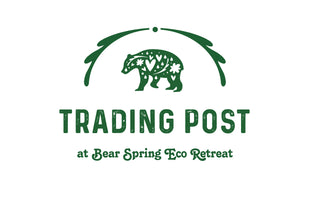Aggressively Pursuing Comfort

“Ageing is the aggressive pursuit of comfort”. When I recently read these words for the first time, I had an aha moment! I had been thinking about this very concept but, I hadn’t quite figured out how to articulate it until I stumbled across this quote by Gary Brecka.
Gary is a human biologist and co-founder of 10X Health System. With more than 20 years of functional medicine experience, he’s known as a bio-hacker. Bio-hacking is the use of supplements and technology to help enhance human biology and ultimately improve health, performance and well-being. But Gary isn’t just into bio-hacking. He also discovered that the aggressive pursuit of comfort weakens our bodies and he actively seeks out opportunities to use discomfort for growth and invigoration. We’re not meant to live sedentary lives in temperature controlled environments, eating meals at regular intervals day in day out. Gary believes that our bodies decline quicker the more we pursue comfort. And I would argue that the aggressive pursuit of comfort speeds up all sorts of decline, not just in our bodies, but in our societies.
Overeating leads to digestive problems as well as issues with blood sugar and insulin. Fasting provides many positive health benefits. It’s not comfortable to be hungry but, our bodies were built for it. You have to challenge your immune system, be exposed to dirt, to make it stronger. You can’t build muscle without resistance. If you never expose your skin to the sun it will start burning easier. If you don’t get your heart rate up, your heart weakens. You’ll lose some stability if you’re not constantly testing your balance capabilities. If you retreat into temperature controlled environments every time it’s excessively hot or cold it will be even more difficult for your body to adjust to the changing seasons. We can’t even be born without some measure of discomfort!
Here, sheltered in our privileged North American lifestyle, we’re encouraged from birth to pursue comfort. Although we’re fortunate to live in constant comfort, it comes at a significant cost to both our individual health and to the health of our communities. I believe that our constant avoidance of discomfort has resulted in habits that are damaging to both us and our society.
Let’s consider driving for example. Driving might be comfortable in that you can travel far and fast without having to expend any physical energy. You can carry a lot of stuff with you that would likely be impossible on foot. Driving is also expensive and unaffordable for some, which increases inequity and social injustice. It’s dangerous. Did you know that car crashes are a leading cause of death? 42939 deaths in the US alone, in 2021. Driving also results in a lot of pollution and some other not so obvious negative outcomes such as public land use policies that drive up the cost of housing and hurt small businesses.
Most driving is done alone, leaving the comfort of our garages and arriving at a sterile parkade or parking lot for work. It’s not possible to make any social connections with other drivers along the way. Loneliness is a growing epidemic. Driving only exasperates this disconnection. Driving also disconnects us from the natural world around us. You miss the sounds of birds chirping, the smell of the trees or seeing leaves unfurl and flowers bloom. You’ll never get to feel warm rain in the summer or observe the lovely silence that fresh falling snow brings. You can’t stop and visit with friends you pass along the way. You can’t gaze at stars when you’re driving either. These are all experiences that enrich our lives in healthy, fulfilling ways. Loneliness and stress do the opposite.
Driving hasn’t even been mainstream for 100 years and yet, most of us take it for granted. According to recent statistics, almost 60% of all car trips in the US are less than 6 miles (10 km). I walk 3 miles (5 km) every day just for fun. The average person could cycle this in a half hour. It’s free exercise. Walking or cycling will help you connect with your natural surroundings and your community. By foregoing the comfort of your car for just the shorter trips, you will be putting years back into your life.
I have a friend who is a professional planner. She has made a career out of analyzing data about our community’s transportation habits, building styles and waste management and makes recommendations for best practices going forward. She always says “walking puts time in my day”. In fact, she walks up to 8 km a day, 2500 kms a year. In her late 50’s and in excellent physical condition, she’s happy, healthy and feels connected to her community all because she chooses to walk whenever possible..
Before cars, people walked a lot more like my friend does. We couldn't carry a lot, so we lived closer to amenities. There were no big box grocery stores. We would visit the baker for bread or the butcher for meat and we’d meet our neighbors along the way. We spent a lot more time growing and cooking food too. But, now we’ve been lured into the easy route of prepackaged food.
During the war in the 1940’s, out of necessity, Americans grew about 45% of the country’s produce in backyard gardens or victory gardens. Now we grow less than 1%. We have grown reliant on convenience foods and pre-packaged meals produced by a corporate agricultural industry. Compare that to over 50% of people working on farms 100 years ago to only 10% now. And this figure doesn’t represent just people working on farms growing food but, also people working in big factories producing food. Many of us don’t know the first thing about growing food anymore. In fact, many of us don’t even know how to prepare and cook either. Our diets are at the mercy of factory farms that produce food for profit, often with lower quality ingredients and with tons of additional sugar, salt, preservatives and fillers. It’s true that growing your own food can be a lot of work, but it is very rewarding too. It’s even more work to preserve it and cook it. Most of the animal kingdom spends the better part of each day hunting and foraging for food. It only makes sense that humans should devote more of their time and energy growing and cooking theirs. Food picked straight from the garden is the most nutrient dense. It tastes better too. Your body will thank you for the discomfort you experienced in the process and not just for the nutrients but, for the physical activity as well.
It’s quick and easy to grab pre-packaged meals from the grocery store but our health is suffering because of it. And so is our environment with all the mountains of plastic waste produced in the process. Our comfort focused lifestyles create a lot of pollution and not just packaging, emissions too. In our pursuit of comfort, we are building larger and larger houses in which to retreat from the outside world. These homes need to be heated and cooled ensuring a constant optimal temperature of 72 degrees F (21 degrees C). With the advent of forced air furnaces, it’s possible to maintain an optimal temperature in every room of a building throughout the day and night. But it’s costly in both energy and your savings account. The average home size has doubled since the 1950s.
I have wood heat in my home, but without fans and ducting to move the heat around, it’s only warm in the room where the stove is. I woke up this morning and it was 54 F degrees (12 C) in my bedroom. I had to remind myself that this is a nice overnight temperature like camping in the summer. My bed and duvet offer far more insulation than a sleeping bag and air mattress. When I visit friends and family with forced air heating, I find their homes too hot, especially at night. We sleep better when our bedrooms are cold. Turn the heat down.
With abundant electricity, we are no longer waking and sleeping with the sun. We can stay up all night basking in the comfort and safety of lights everywhere inside and outside our homes. We no longer gaze at the stars and contemplate the miracle of our existence. Light pollution is disrupting our sleep patterns and the migration of birds and bugs too. It harms both us and our world, which can lead to an increase in cancer. I don’t think anything ages us more than lack of sleep. Adequate and quality sleep is essential to good health and longevity. Turn the lights off at night.
There are many more ways we can improve our lives by not resisting discomfort. I find it ironic, that in this day and age when we have become obsessed with maintaining our youthful vigor and appearance, we do everything except the one thing that would make a difference - embrace discomfort. We’ve become soft, always seeking an easier lifestyle but, perhaps it’s really not easier in the long run if we don’t challenge ourselves. We’ve got to do the hard work to enjoy the results. There is no way around it. How we travel, what we eat and the buildings we live in are key factors in our well-being. You need to sweat, strain your muscles, feel cold and heat, get your heart rate up, gaze at stars, smell the trees, dress for the weather, dance in rain, sunbathe, play in snow, swim in cold water, garden, work up an appetite, cook, talk to your neighbors, walk more, drive less, challenge yourself, downsize, make due with less, live more simply and above all, allow yourself to feel both comfort AND discomfort.


Right on. This is accurate as to physiology and there’s the psychological and social as well, as you so well point out. Natural selection does not invest in that which is not being used…aka if you don’t use it , you lose it. e.g. 2 weeks in bed (e.g. after an injury) and you lose 20% of your bone and muscle mass – this is why falls are one of the great risks of aging…and yes using your balance is thus so important ( I often advise simple one legged poses with a hand close to but not holding a railing or equivalent height object as a daily practice)…and the slowing down to the speed of life = an intrinsic mindfulness practice and opportunity to connect with others. Material interdependence is the original/natural basis for connection.
Leave a comment